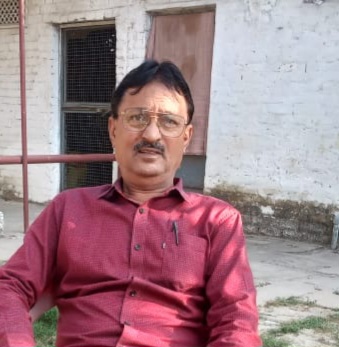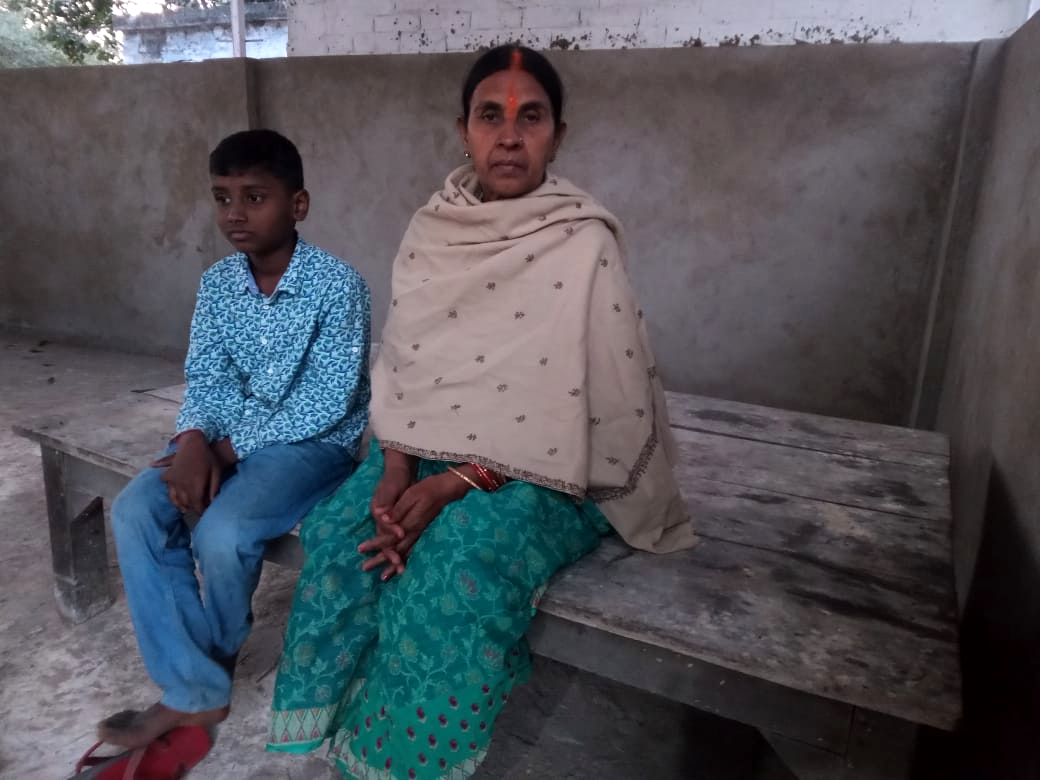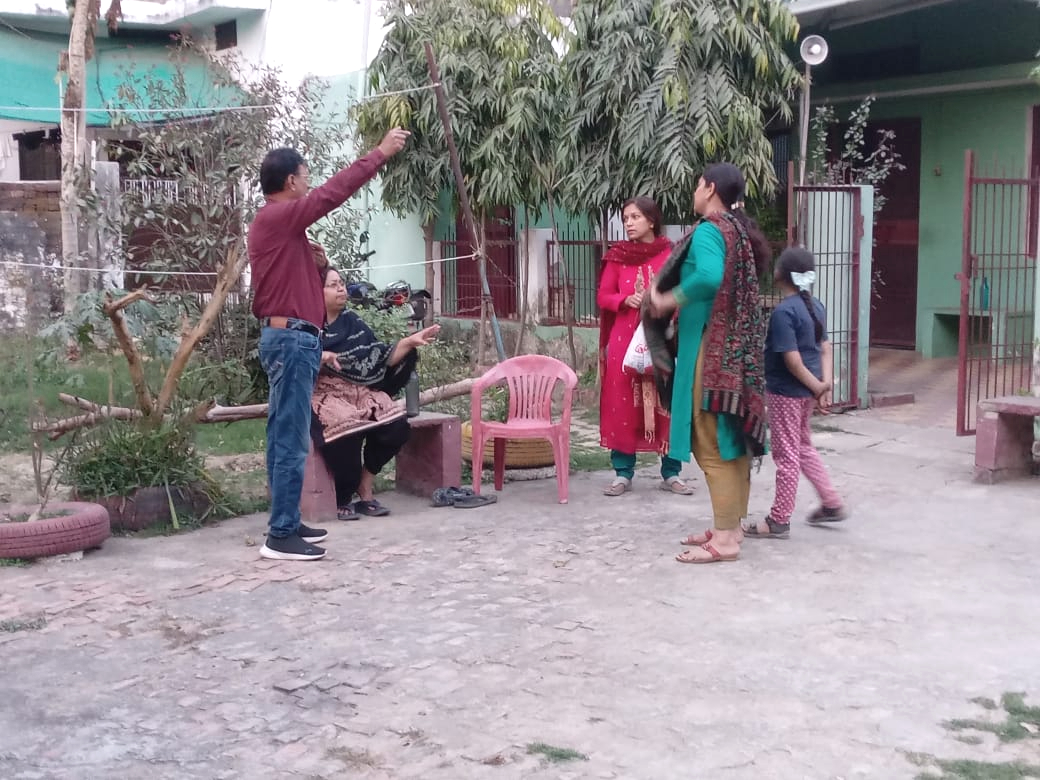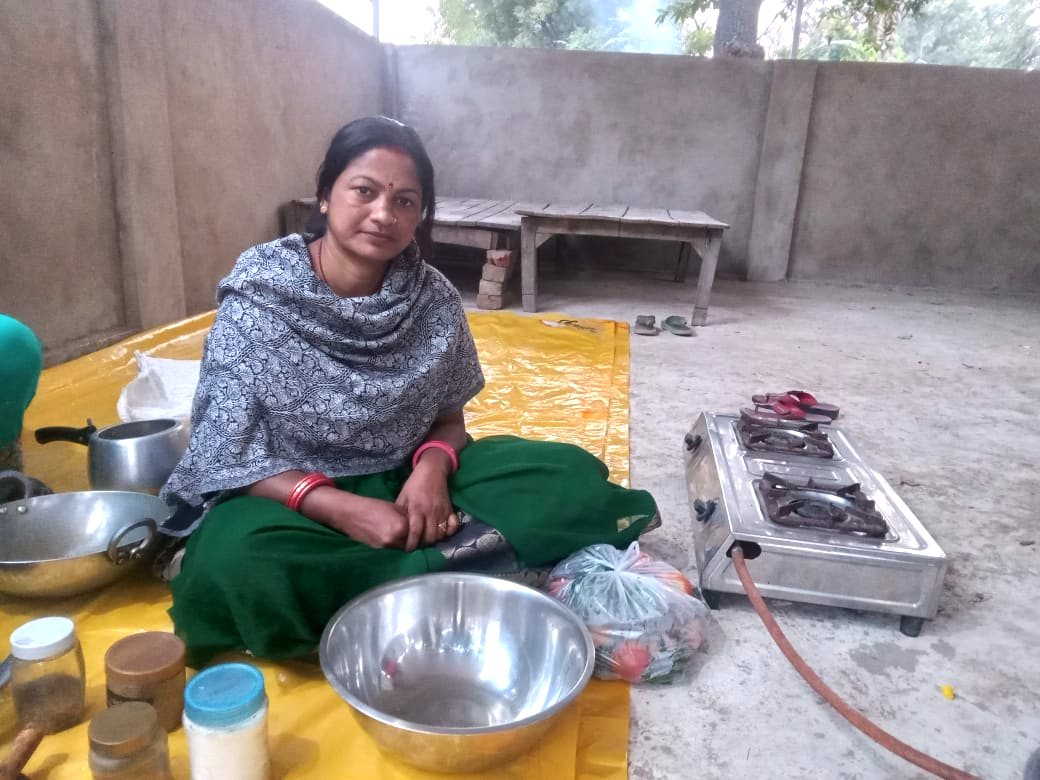Maha Kumbh: A Muslim Man’s Unlikely Hospitality to Hindu Pilgrims in Varanasi

Pavan Kumar Maurya, TwoCircles.net
Varanasi: Hindu devotees from various states are flocking to the ancient city, also known as Kashi, for holy dips in the sacred Ganga River on the auspicious occasion of Maghi Purnima (a full moon day that occurs during the Hindu calendar month of Magha that usually falls in January or February). The atmosphere in the city and on the ghats (steps leading down to a water body) is filled with devotion as millions of pilgrims gather.
However, the overwhelming number of devotees in the already congested city led to a shortage of hotels, lodges and rooms for accommodation. Amid this chaos, a local Muslim man thought to do something unprecedented — rising above his personal — for the larger cause of humanity. He opened the doors of his house for hundreds of Hindu pilgrims who had come for their spiritual journey to Kashi, offering them hospitality along with his family.
 Jyoti Godse, a resident of Gujarat’s Vadodara district, came with her family to take a dip at the Mahakumbh in Prayagraj, formerly Allahabad. After the holy bath in the Sangam (the confluence of Ganga, Yamuna and mythical Saraswati rivers), she decided to visit Varanasi to see the famous Kashi Vishwanath Temple and take a dip in the holy Ganges. After their visit to Prayagraj, she travelled to Varanasi with her husband, son, brother-in-law and sister-in-law by car. Jyoti is a housewife with a background in business administration (BBA), and her husband is a businessman.
Jyoti Godse, a resident of Gujarat’s Vadodara district, came with her family to take a dip at the Mahakumbh in Prayagraj, formerly Allahabad. After the holy bath in the Sangam (the confluence of Ganga, Yamuna and mythical Saraswati rivers), she decided to visit Varanasi to see the famous Kashi Vishwanath Temple and take a dip in the holy Ganges. After their visit to Prayagraj, she travelled to Varanasi with her husband, son, brother-in-law and sister-in-law by car. Jyoti is a housewife with a background in business administration (BBA), and her husband is a businessman.
“For the peace and progress of our family, we first visited the Maha Kumbh Mela to take a sacred dip at the Sangam, and then we travelled to Varanasi to take a dip in the holy Ganges. We are a group of six people. My husband inquired about accommodation in local hotels and lodges, but none had any rooms available. Everything was already booked. We had to stay at a parking yard near Mint House. Staying under the open sky, cooking and especially the problems women and children face in terms of toilets were challenging. There was also the fear of our belongings being stolen. The evening came, and we were left wondering how we would spend the night in the open,” she said.
Her sister-in-law was feeling feverish and anxious due to exhaustion. She needed rest, and they were in a state of distress, not knowing what to do. At that time, they noticed a house with a camp right next to the parking area, where some pilgrims were already staying. Some were cooking food in a tin shed.
“I decided to inquire there for accommodation. This house belonged to a very kind-hearted man (Mohammad Saleem Merchant). Upon describing our situation, he immediately offered us space in the tin shed outside his home to rest. We stayed there with my sister-in-law and the others, and in the morning, we used his toilet and washroom for our daily routines. Saleem’s help was much appreciated, especially in a crowded place like Varanasi, where it is not easy for women to find comfortable arrangements. He rose above religious differences and dedicated himself to serving humanity. We were truly grateful for his kindness,” she narrated.
Who is Saleem?
Saleem is a medium-sized businessman who is a trader of Banarasi sarees. His house is located in the posh Mint House area, a locality near the city’s Cantonment Railway Station. His house is a few meters away from the ground and consists of three to four rooms, a toilet and a washroom. Outside his house, there is a garden covering, with plants bearing mangoes, lychees, chikoo and other fruits. Many pilgrims were resting in the garden.
Though Saleem’s house is small, the garden is quite spacious. The open tin-shed room adjacent to the garden can accommodate several people for sleeping, cooking and resting. There are mango trees providing shade, where many pilgrims were resting. For their convenience, Saleem opened his personal bathroom and ensured the pilgrims had access to water and food. He even hired a staff to ensure a steady supply of drinking water.
Varanasi’s Spirit — ‘Atithi Devo Bhava’
Saleem said, “Every day, around 200 to 250 Hindu pilgrims rest in my compound according to their convenience. To ensure their safety, I informed the nearby Nadesar police station. Since childhood, I have had a habit of helping people. What I am doing is not extraordinary as service to humankind is the basic teaching of Islam. Our Varanasi culture embodies ‘Atithi Devo Bhava’ (a Sanskrit phrase that means guest is God). For us, anyone who comes to Kashi and Mother Ganga is our guest, irrespective of their caste or religion. In the area near my house, thousands of cars and millions of people are arriving. These pilgrims, including men, women, children and the elderly, face difficulty resting under the open sky due to exhaustion. I thought, why not let them rest in my house and compound, have some food and rest before moving on to their next destination. I hope that after their visit here, they return home safely after completing their religious duties.”
He claimed Prime Minister Modi and Chief Minister Yogi Adityanath have also made great efforts to ensure pilgrims face no problems. “As citizens of Varanasi, it is our moral duty to help them,” he said.
A Safe Haven for Pilgrims
 Vaishali from Meerut in Western Uttar Pradesh stayed at Saleem’s home with her family. “We came by car for the holy Ganga bath and to visit Baba Vishwanath’s temple. When we arrived here, there were no available accommodations. The designated parking areas were crowded, and the ground was filled with dust — making it impossible to rest. We decided to check with nearby houses and found a place to stay in Saleem’s house. It was for free. I felt like this was the result of my good deeds that we received such hospitality in Baba Vishwanath’s city,” she narrated.
Vaishali from Meerut in Western Uttar Pradesh stayed at Saleem’s home with her family. “We came by car for the holy Ganga bath and to visit Baba Vishwanath’s temple. When we arrived here, there were no available accommodations. The designated parking areas were crowded, and the ground was filled with dust — making it impossible to rest. We decided to check with nearby houses and found a place to stay in Saleem’s house. It was for free. I felt like this was the result of my good deeds that we received such hospitality in Baba Vishwanath’s city,” she narrated.
She added, “I believe Hindu-Muslim conflicts are a political game. We should understand this. Hindus and Muslims are brothers. The work that the city administration and other citizens should do, a Muslim brother has set an example by doing it. We stayed at his house, and Saleem and his wife took good care of us.”
Every day, 200 to 250 Hindu pilgrims are staying at Saleem’s house. The pilgrims said Hindu-Muslim issues are often politicised for electoral gains, while in reality, the two communities prefer to live together in harmony. The plant of social harmony that Saleem has nurtured sends a message of peace not only across the country. After taking a dip in the holy Ganges, thousands of Hindu pilgrims from states such as Haryana, Gujarat, West Bengal, Maharashtra, Bihar, Punjab, Rajasthan, Madhya Pradesh, Karnataka, Andhra Pradesh, Tamil Nadu, Telangana, Jharkhand, Odisha, Delhi and Uttarakhand are carrying with them the message of Hindu-Muslim unity and a positive experience from Kashi.
A Flagbearer of Humanity
Munidev from Muzaffarpur in Bihar came with his family to visit Kashi. They were struggling to find accommodation, but after arriving at Saleem’s house, they were warmly received.
“Only a small percentage of people try to create disturbances by fostering Hindu-Muslim conflicts, while wise people know that unity is the key to the country’s and society’s well-being. No religion or faith asks you to be hostile to others. In Prayagraj, after the stampede, thousands of people took shelter in mosques and prayer halls. Muslim brothers extended their help. Here, the peace-loving Muslims of Varanasi are raising the flag of humanity. Varanasi is truly embodying the meaning of ‘Atithi Devo Bhava’ with the kind help of Saleem is extending,” he said.
Anita, who returned from the Maha Kumbh bath in Prayagraj, is now at Saleem’s house preparing food for her family. She said, “I had never experienced such a sacred journey before. After returning from Prayagraj, I was anxious and unsure about where to stay. When we arrived at Saleem’s house, we found many other pilgrims resting there. He offered us a place to stay without charging any money. I pray to Ganga Maiya and Baba Vishwanath that Saleem and his family remain happy and prosperous. This experience in Varanasi makes me believe that there are still good people in the world.”
(Pavan Kumar Maurya is an independent journalist. He tweets at @pavanmaurya17)
